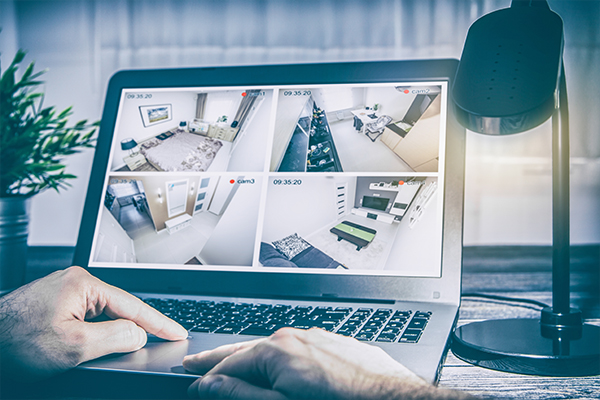What is the Difference Between Analog and IP Cameras in a CCTV System?
When you are considering different security systems and potentially implementing surveillance cameras into your home or business, a big question is whether you want IP or analog cameras. Global Market Insights estimates that the IP camera market will be worth more than 20 billion by 2025.
With today’s technology both IP and analog systems can be viewed from a multitude of platforms including your pc, television, and through a network connection to your smartphone or tablet. The principal differences between the two systems are cost and video quality. Analog systems are less expensive, but the quality of the picture is limited to HD. IP systems, although more expensive, provide extremely high-quality video.
Analog Cameras
Analog cameras are what most people think of when thinking of a CCTV, aka closed-circuit television, system. Typically, an analog system was a camera or cameras connected to a VCR and every day or two the tape had to be changed. Over the years, analog became a bit more complex using multiplexers and multiple VCRs. In more recent years, analog to digital converters were introduced making analog cameras more sophisticated. In today’s world, analog cameras are very similar to digital IP cameras less the picture quality and the cost. Like IP, analog can be streamed, viewed remotely, and stored in the cloud.
IP Cameras
Internet Protocol cameras, also known as network cameras, are what most businesses today are choosing because of their flexibility. IP camera systems are a bit more complex to install than analog systems since each device has its own IP address on the network. In most cases, the CCTV system will reside on its own network because the CCTV system will demand more bandwidth than is typically available on a company’s internal network. Each camera is connected directly to the network and its video is sent through routers and switches to a location determined by the user. Some cameras may be viewed live, others recorded for later viewing, and others may be sent to a mobile phone or other device. All, or a select few, can be recorded and saved either on an internal or cloud-based server.
Wireless IP cameras can also be used for small applications, such as in-home use or just for a couple of cameras in your small business. These are easy to setup in your home or small business, but again be aware that too many wireless cameras will bog down your internet speed and you may not be able to view them live remotely if you do not have enough bandwidth. The typical home might have a doorbell camera, a back patio camera, and one or two others. Any more than that and your internet speeds may be compromised.

Considerations
Designing a CCTV system can be complex. Without the proper guidance, you may not get the system you want. There are a ton of CCTV systems available online, and out of the box options at your local retail store, but none of these can give you the quality and personal service you will get from a professional. Don’t waste your money on these cheap camera systems. Use a reputable firm that provides service, support, and warranties for their products and will help you design a system that works for you.
If you are interested in learning more about different security cameras and want to find out which one will suit your needs, give the FSS Technologies experts a call!